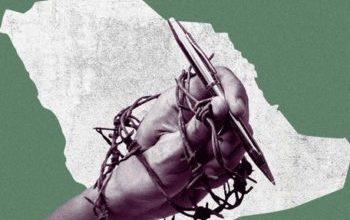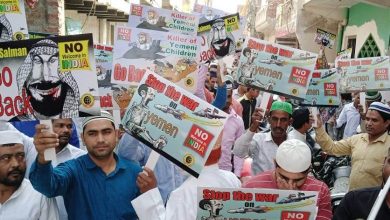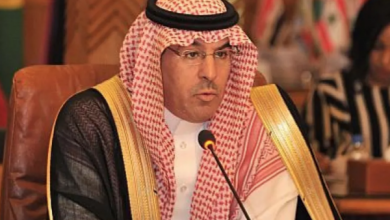Death sentence for those who refuse forced displacement in Saudi

Human rights groups condemned Saudi authorities’ severe punishment of men who refused forced displacement in the Kingdom. Groups indicated some men’s punishment reached up to death sentences.
On October 2022, the Specialized Criminal Court issued death sentences against three men of the Al-Hwaitat tribe for refusing to give way to Neom, a project that the Saudi authorities adopted extreme methods to displace the residents.
The Specialized Criminal Court was established in 2008 to address terrorism allegedly. But instead, it seemed to be preoccupied with issuing death sentences against citizens who refused to leave their homes. For example, in April 2020, the Court issued a death sentence against Shadely Al-Hwaiti just after the Saudi forces killed his brother at his home in the Tabuk region.
On May 23, 2022, Shadley Al-Hwaiti went on a hunger strike to protest against ill-treatment and solitary confinement. The Dhahban prison administration responded to his protest two weeks later by inserting a gastric tube to force-feed him, a form of torture.
Ibrahim Al-Hwaiti was among the delegation that met with the committee concerned with expropriating property related to the NEOM in 2020. Atallah Al-Hwaiti also appeared in several videos, in which he talked about the suffering of his family and all the forcibly displaced.
The head of the activities of the ALQST Human Rights Organization, Abdullah Al-Jeriwi, described the sentences handed down to them as shocking.
He said that it “again shows the Saudi authorities’ blatant disregard for human rights, as they are preparing to take harsh measures to punish members of the Al-Hwaiti tribe for their protest against the project and the forced eviction it caused from their homes.”
In June 2020, ALQST published a public call calling on the consulting firms in the NEOM project to denounce the human rights violations that the project is witnessing.
Even before Abdul Rahim was killed, several members of the Al-Huwaitat tribe were arrested for refusing to be forcibly displaced from their homes, and the authorities detained and killed others.
It issued long-term sentences against some of those arrested, namely Abdullah Al-Hwaiti and Abdul-Ilah Al-Hwaiti, who was sentenced to 50 years in prison.
After carrying out numerous violations against the residents, the Saudi authorities tried to polish their reputation by pushing members of the tribe to praise the authorities’ practices. The authorities promised to pay 100,000 riyals for each member and 300,000 for a sheikh who complies.
This is in return for participating in media work and a mass festival in which they declare their innocence against Abdel Rahim and the tribe’s members who refuse to be displaced and announce what the authorities called “the renewal of allegiance.”
Residents of areas affected by forced displacement and armed forces participated in the questionnaire, as in the case of the Al-Huwaitat tribe in the Tabuk region in 2020 and the removal of the historic Al-Musawara neighbourhood in Al-Awamiya in eastern Saudi Arabia in 2017.
This indicates an arbitrary approach adopted by the Saudi authorities in implementing their projects without respecting people’s rights to decent housing and without providing a remedy for those who file complaints. Instead, it continues this approach and infiltrates it by issuing death sentences against those who rejected these unfair decisions or complained about their results.
These sentences come in a year in which the Saudi authorities carried out 122 executions at the time of writing. In March alone, the Saudi authorities executed 104 prisoners, 81 of whom were executed in one day. Almost half of them belong to the Qatif and Al-Ahsa regions in eastern Saudi Arabia, two regions that have witnessed demonstrations calling for reform in the past decade.
ALQST confirmed its rejection of the death sentences issued against Shadley, Atallah and Ibrahim Al-Hwaiti. In addition, it confirms its rejection of the use of the death penalty and rejects the lengthy sentences previously given against Abdullah and Abdullah.
The human rights organization called for putting pressure on the Saudi authorities to drop these unfair sentences. It expresses concerns about the escalating and violent approach taken by the Saudi authority towards members of the Al-Huwaitat tribe detained for their refusal to be displaced from their homes.





